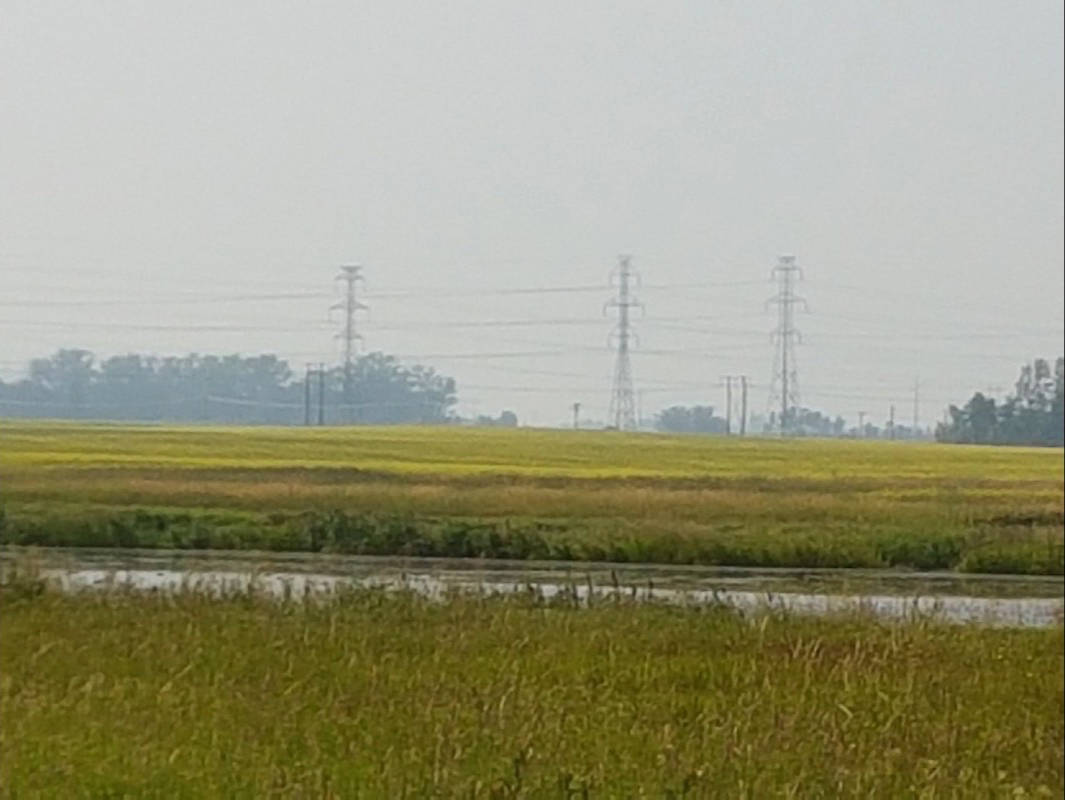By Emily Rogers
Red Deer Express
Air quality in the Red Deer area has improved to a moderate risk on Thursday, reaching a five on the Air Quality Health Index (AQHI), compared to Wednesday’s high-risk advisories.
Alberta Health Services (AHS) recently issued an update stating air quality is expected to vary for the coming weeks.
The Red Deer area saw high risk levels, reaching an eight on the AQHI on Wednesday, due to wild fires in British Columbia and Banff National Park.
The province is the encouraging residents and visitors to be aware of air conditions, and take precautions against potential health concerns, that can be a result of the smoke filled air.
The Government of Canada web site states a cold front has flushed a lot of the smoke out of the province, but the smoke is expected to cross the Rockies on Tuesday night and Wednesday. The web site added current indications are that the thickest smoke, and poorest air quality will be between Hinton, Red Deer, and Edmonton.
The AHS web site said individuals should close all outside windows, doors, and if needed reduce levels of physical activity in order to reduce the inhalation of airborne pollutants. In addition to avoiding the use of fans, that can bring an increase of smoky air inside.
While the AHS web site added children and the elderly are at a higher risk of smoke-related illnesses. The we site states individuals with respiratory conditions, and existing cardiovascular conditions may notice a worsening of symptoms due to current air conditions. These individuals are advised to monitor their symptoms, and take precautions recommended by their physicians.
The Environment Canada web site added exposure to air pollutants can cause a range of symptoms including irritated eyes, headaches, coughing, while more specific symptoms can include increased heart flutters, and chest pain.
Officials added individuals are encouraged to stay inside if they are having difficulties breathing, and to find an indoor place that’s cool, and ventilated.
If needed, individuals who are experiencing symptoms can also call Health Link at 811 to speak to a registered nurse. Or to stay up to date on information on how to reduce health risks and current AQHI values individuals can go to www.airhealth.ca.



